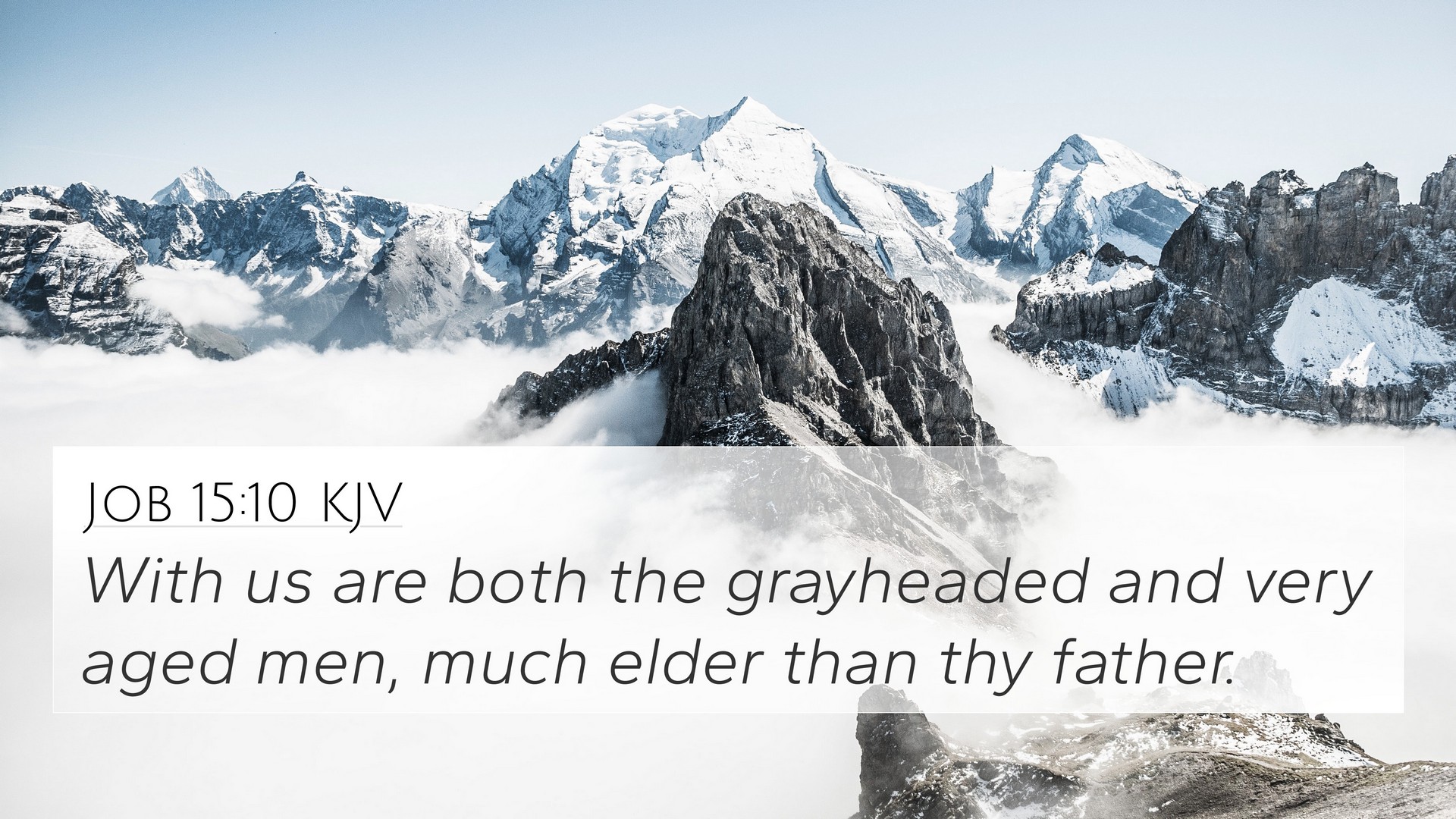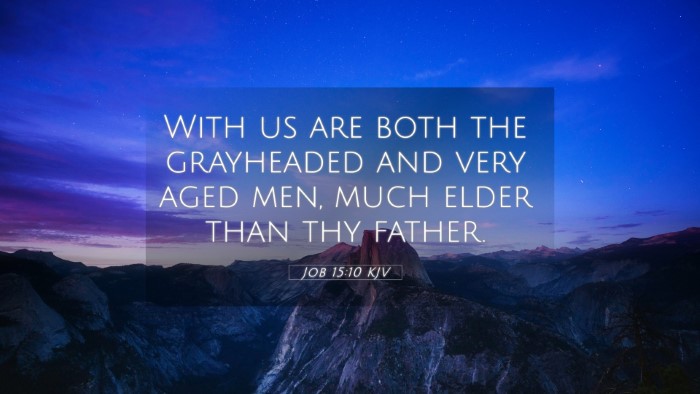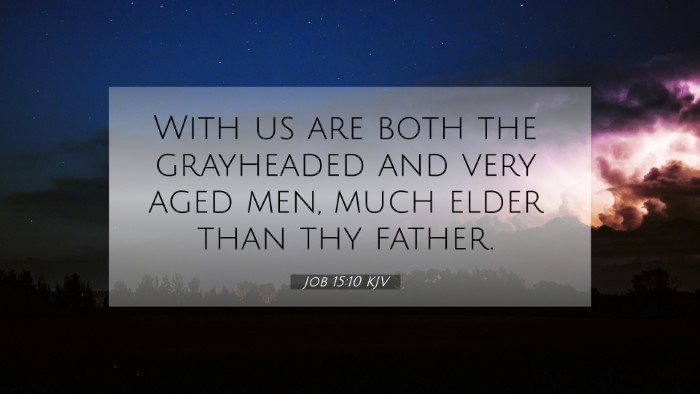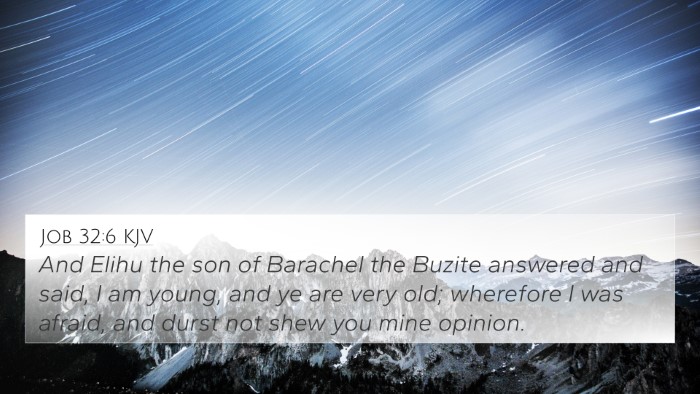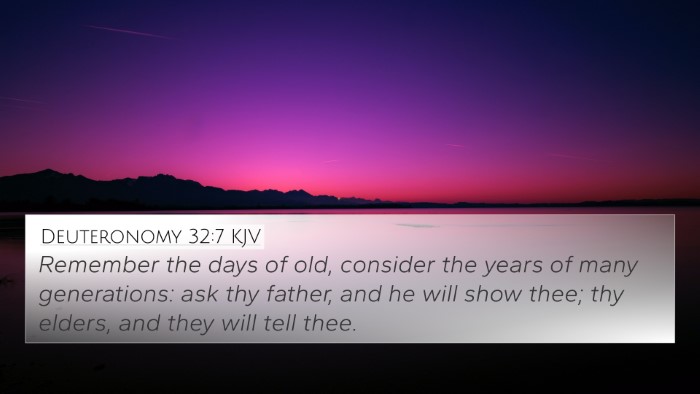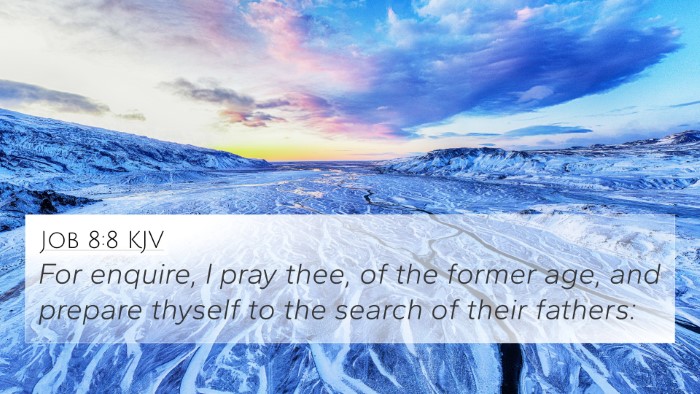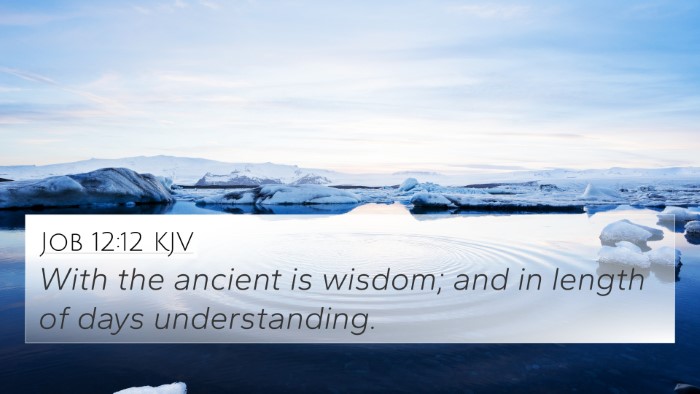Understanding Job 15:10
Verse: Job 15:10 (KJV) - "With us are both the gray-headed and very aged men, much elder than thy father."
Overview
The verse occurs within a discourse between Eliphaz and Job where Eliphaz seeks to emphasize the wisdom arising from age and experience. In doing so, he attempts to illustrate Job’s position regarding his sufferings and the wisdom of the older generation.
Commentary Insights
This verse finds a rich interpretation in the context of the themes of wisdom and suffering present throughout the Book of Job. Below are combined insights from various public domain commentaries.
-
Matthew Henry:
Henry emphasizes the value and authority of the elderly in the context of wisdom. He underlines that Eliphaz is attempting to assert the merit of ancient wisdom over Job’s own understanding, essentially presenting a generational divide on the understanding of God’s ways.
-
Albert Barnes:
Barnes points out that Eliphaz serves as a representative of traditional views. He stresses that older men are often the bearers of collective wisdom and experience, which should be acknowledged when discussing matters as profound as divine justice and suffering.
-
Adam Clarke:
Clarke suggests that the argument presented here highlights a social expectation of respect towards older individuals. The verse indirectly critiques Job’s questioning of God by asserting that those with more years have witnessed God's dealings and can thus provide profound insights into his character.
Bible Cross-References
This verse can be cross-referenced with several other scriptures that discuss wisdom, age, and the understanding of divine matters:
- Proverbs 16:31: "The hoary head is a crown of glory, if it be found in the way of righteousness." – Emphasizes the honor of age when aligned with righteousness.
- Proverbs 20:29: "The glory of young men is their strength: and the beauty of old men is the gray head." – Acknowledges differing qualities attributed to youth and the elderly.
- Psalms 92:14: "They shall still bring forth fruit in old age; they shall be fat and flourishing." – Affirms continual value of the elderly in faith.
- Job 12:12: "With the ancient is wisdom; and in length of days understanding." – Direct citation of the importance of age in wisdom.
- 1 Timothy 5:1-2: "Rebuke not an elder, but entreat him as a father; and the younger men as brethren." – Encourages respect and proper conduct towards older individuals.
- Proverbs 1:5: "A wise man will hear, and will increase learning; and a man of understanding shall attain unto wise counsels." – Asserts the significance of heeding wisdom.
- 2 Chronicles 10:6-7: "But king Rehoboam took counsel with the old men that had stood before Solomon his father." – Illustrates the practice of seeking guidance from those with experience in leadership contexts.
Thematic Connections
Job 15:10 touches upon themes central to both the Old and New Testaments regarding wisdom derived from age and experience. It resonates with:
-
The Concept of Wisdom:
Throughout scripture, wisdom is often associated with age. Job's discourse reflects a deeper theological principle about the spiritual insight gained over a lifetime.
-
Authority of Elders:
Many passages affirm the place of elders in spiritual guidance, as illustrated in the early church (1 Peter 5:5) where the young are encouraged to submit to the elder.
Conclusion
In examining Job 15:10, it is essential to recognize its multifaceted nature. The interplay between the wisdom of the elderly, the respect demanded in discourse regarding divine matters, and the broader implications of suffering are critical to understanding this passage.
The cross-references underscore how this verse fits into the larger narrative of scripture where wisdom, age, and righteousness converge, thus aiding in deeper comprehension and application of biblical truths.
Further Exploration
For those interested in a more comprehensive understanding of biblical themes, utilizing tools for Bible cross-referencing, such as a bible concordance or bible cross-reference guide, can provide deeper insights and connections across scriptures.
As you study, consider how to find cross-references in the Bible to enrich both personal and communal understanding of the word.
